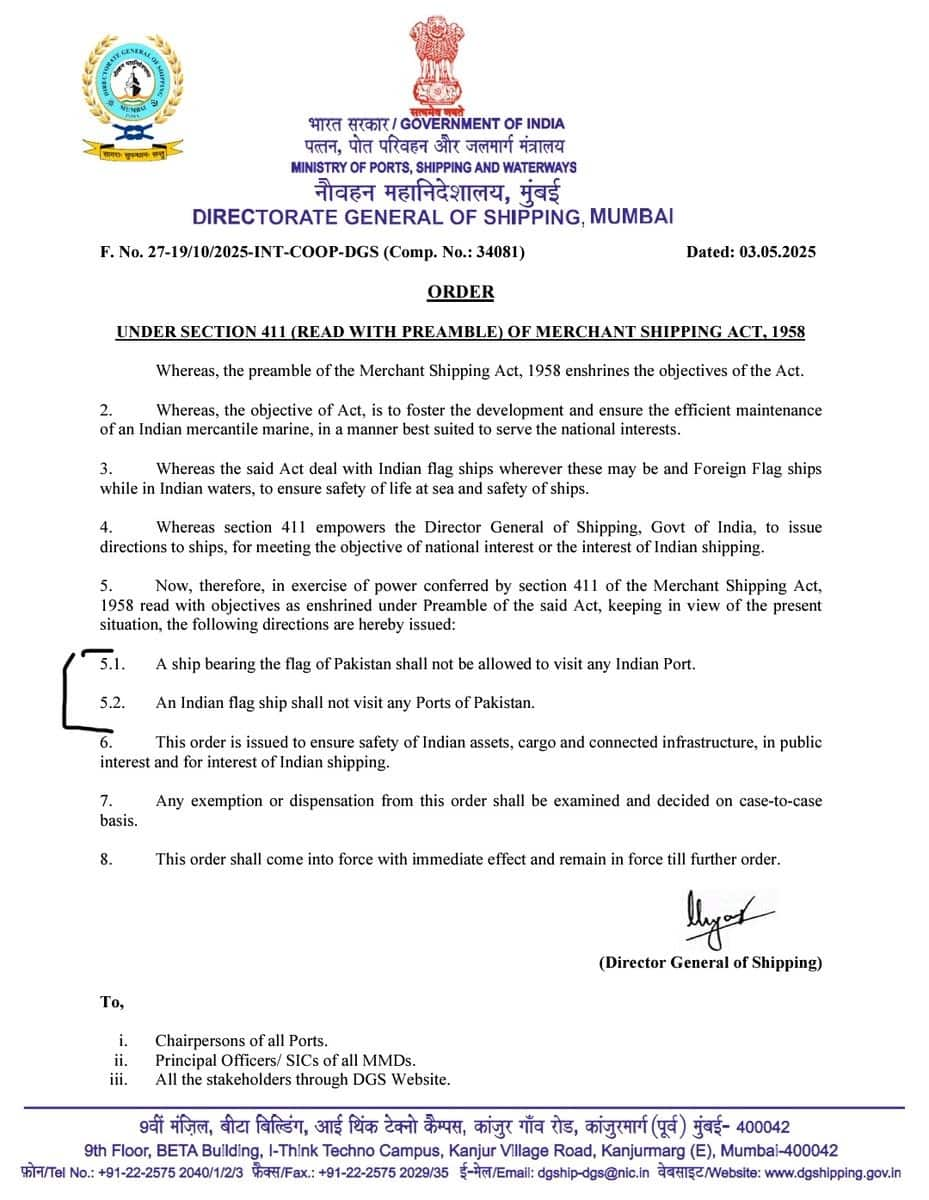In a significant development amid escalating bilateral tensions, the Directorate General of Shipping (DGS), under the Ministry of Ports, Shipping and Waterways, has issued a directive banning all Pakistani-flagged ships from docking at Indian ports. Conversely, Indian-flagged ships have also been prohibited from visiting any ports in Pakistan.
The order, issued under Section 411 of the Merchant Shipping Act, 1958, cites the need to ensure the safety of Indian assets, cargo, and connected infrastructure. The directive underscores the public interest and national security concerns surrounding maritime traffic between the two nations.
"A ship bearing the flag of Pakistan shall not be allowed to visit any Indian Port... An Indian flag ship shall not visit any Ports of Pakistan," states the government order, dated May 3, 2025.
The circular, signed by the Director General of Shipping, calls for immediate enforcement and mandates that no exemptions or dispensations be granted, except on a case-by-case basis. All Indian ports, MMDs (Mercantile Marine Departments), and stakeholders have been instructed to comply with the new restrictions.
Pahalgam attack strains India-Pakistan tiesThis maritime directive comes just days after the Pahalgam terror attack in Jammu and Kashmir, which claimed the lives of 26 civilians, mostly Hindu tourists. Intelligence inputs have reportedly linked the attack to operatives of Pakistan-based terror outfits, fuelling a fresh wave of anger across India.
India has lodged strong protests with Islamabad, accusing it of providing safe havens and logistical support to terror elements targeting Indian soil. The ban on port visits is widely seen as part of a larger strategy of economic and diplomatic isolation being pursued by New Delhi in the wake of the Pahalgam incident.
Though Pakistan has denied involvement, the Indian government has made it clear that bilateral ties will remain frozen unless Islamabad takes demonstrable action against terror groups operating from its territory. The maritime ban could disrupt trade flows and shipping logistics, especially in the western Arabian Sea region, but reflects India’s hardened stance on national security.
What next?While the current order is administrative in nature, more economic restrictions by the shipping ministry could follow if the situation escalates. With diplomatic channels under stress and public anger running high, the move marks a rare but deliberate step in leveraging maritime policy as a geopolitical tool.
You may also like

Maha govt transfers funds of various departments for Ladki Bahin Scheme

Older drivers born in these dates hit with major car tax change

Haryana CM slams Punjab's AAP govt for 'playing politics' over water sharing

Mark Williams to make 'big decision' after World Snooker Championship run ends

Royal Mail issues update after 'sneaky' new 30p charge leaves customers outraged







